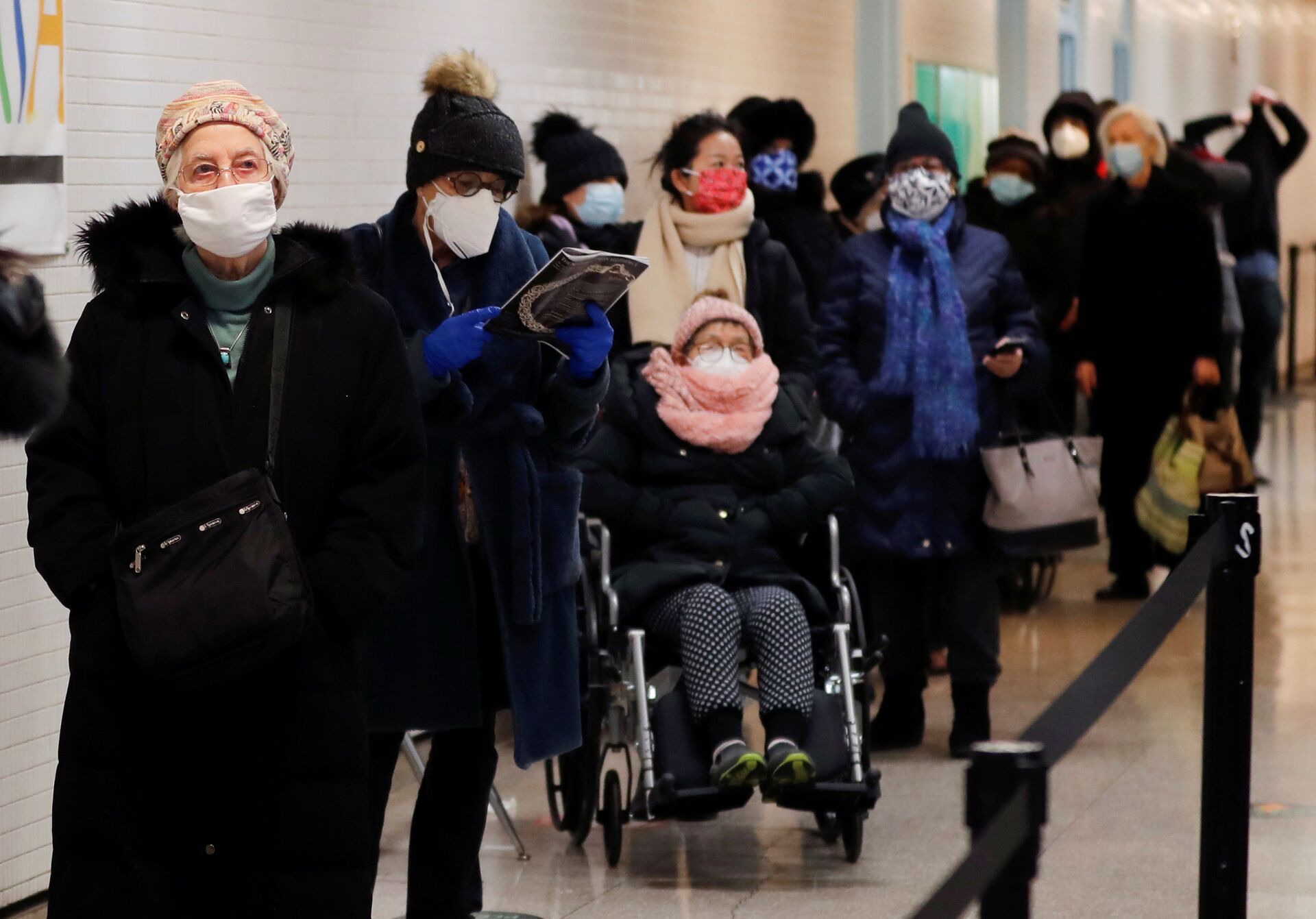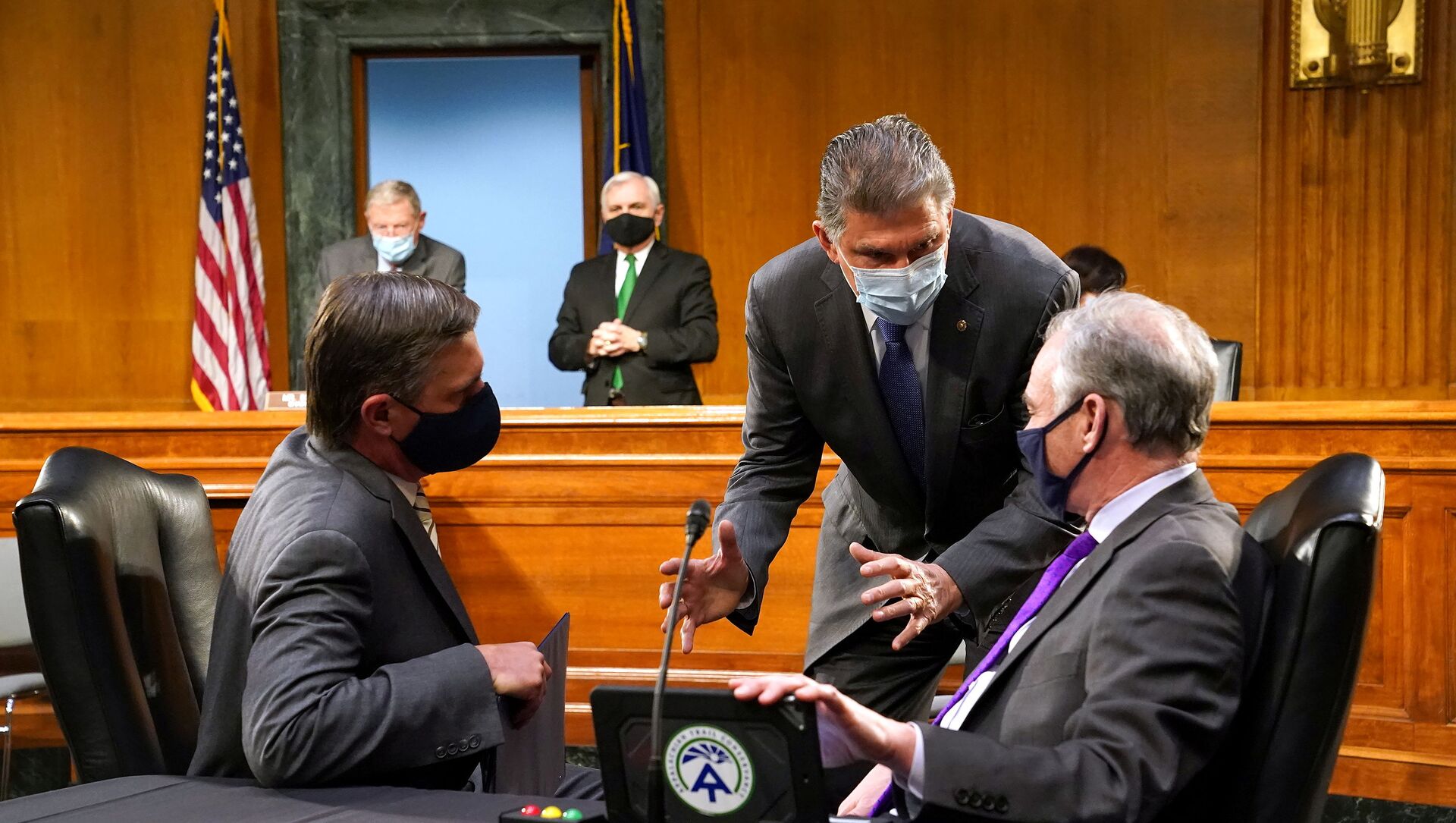While the White House called the meeting “productive” and “substantive”, the parties did not agree on anything. Will the Biden administration face similar delays in unrolling its COVID relief package that Trump experienced in December last year?
Sputnik spoke with Laura Wilson, political analyst and political science professor at the University of Indianapolis, to find out what the future is for Biden's $1.9 trillion stimulus plan and what the political barriers are to it being passed.
Sputnik: While the White House called the meeting “productive” and “substantive”, the parties did not agree on anything. How likely is a bipartisan solution? How long will it take?
Laura Wilson: It is not surprising in many ways that this meeting did not instantly yield an agreeable outcome for both political parties, given the high stakes financially and the recent turnover in membership for both Congress and the president (with some new members of Congress who were just elected, redistribution of committee seats and leadership, etc.). Yet the pressing importance of addressing the economic strain caused by COVID and the critical relief this policy would bring if implemented is not lost on anyone.
For Biden, it is a moment of great significance because of his repeated pledge during the campaign to forge bipartisan agreements and his own challenge of tackling the pandemic immediately upon taking office.
The timeframe is unclear, but what is known is that some sort of agreement needs to occur and the delay only prolongs the economic hardship faced across the country.
Sputnik: Former President Donald Trump has consistently faced criticism for delays in unrolling his pandemic relief plan. In your view, why aren’t we seeing similar scrutiny from the media now?
Laura Wilson: President Trump did not have the benefit of unified government in the last two years of his administration, making policy passage and implementation harder. President Biden just took over office and has created over two dozen directives through executive orders, many undoing the efforts of his predecessor, but all spanning a variety of policy areas. The two main agenda items for Biden's administration right now involving COVID include the relief plan, but also the vaccination distribution.

Because he just stepped into office two weeks ago, and there has been a shift in the dynamics of Congress, especially the Senate which essentially flipped from Republican to Democrat, he has not faced the same scrutiny yet. If the deliberations and delay continue, however, he will be pressured into acting more immediately, an option he would no doubt prefer to avoid.
Sputnik: What compromise, if any, can the GOP and the Democrats achieve on the relief plan?
Laura Wilson: The debate between Republicans and Democrats in the COVID relief plan all centres around cost and need: what is this going to cost our country (in terms of how much more pressure this adds to the federal budget and its growing contribution to the infamous national debt) and what do Americans need? Some sectors of the economy are still experiencing remarkable decline since pre-pandemic times (such as hospitality, entertainment, restaurant and food service, etc.) and this package would provide Americans with funds, many of whom desperately may need it, but it still may not address the major economic challenges facing the nation at large.
Addressing the amount provided within the relief plan or considering stipulations could offer opportunities for bipartisan compromise.
Perhaps more likely, though, is for the parties to consider each other's major policy priorities and include this legislation as part of a larger discussion and compromise between the two.
Sputnik: Can we expect the Democrats to use budget reconciliation procedures to bankroll their initiatives?
Laura Wilson: Using the budget reconciliation option is certainly one way Democrats could pass their COVID relief plan, avoiding the 60 votes needed (10 Republicans a part of that majority) to achieve the traditional agreement. This decision, if the Democrats were to pursue it, could cost them political capital that they might need later, a particularly risky challenge so early in the new presidential administration.

